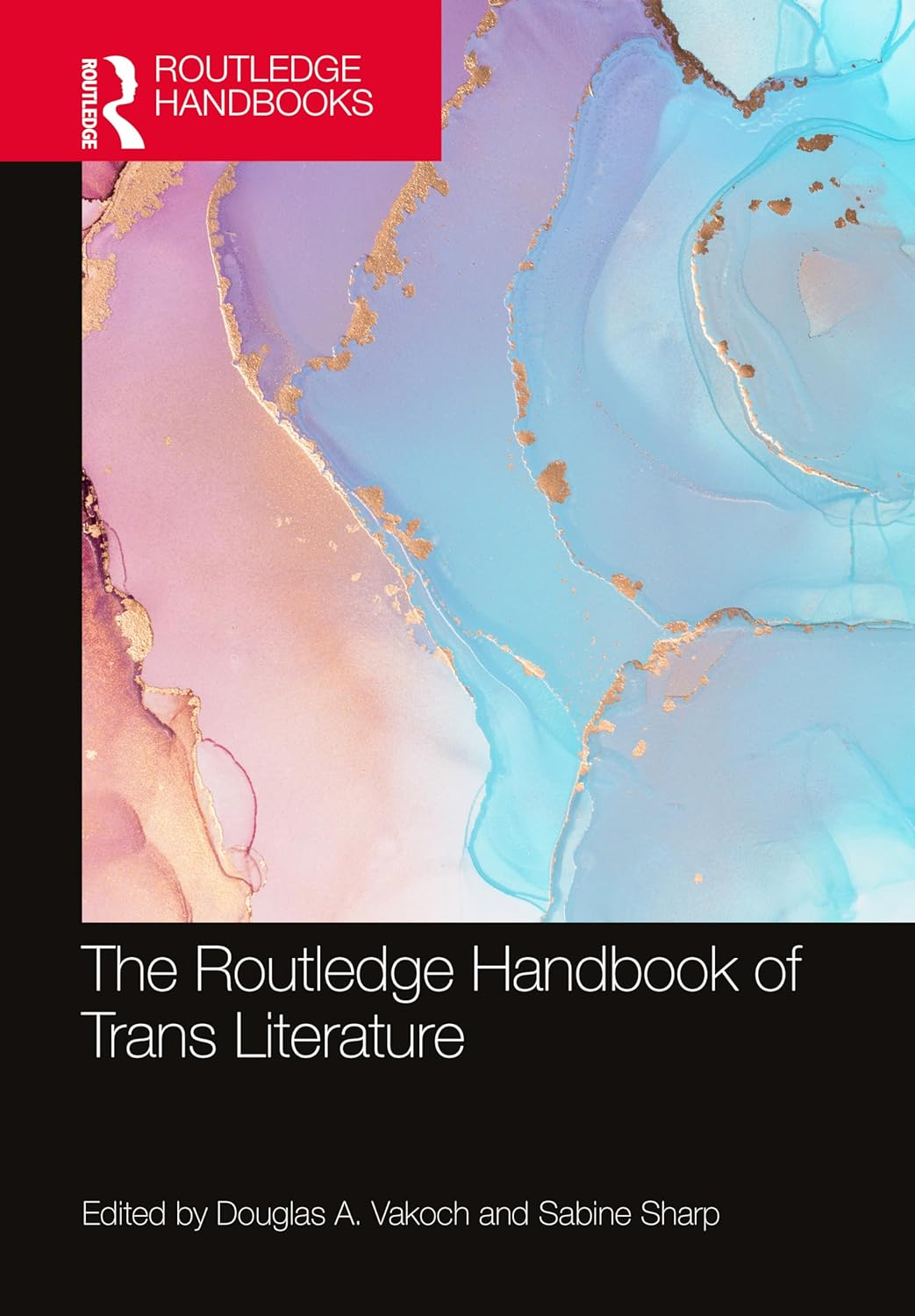Performativity and Trans Literature
The Routledge Handbook of Trans Literature, ed. Douglas A. Vakoch and Sabine Sharp (New York: Routledge, 2024), 29-39 ::: ISBN 9781032431550 ::: DOI: 10.4324/9781003365938-4
Table of Contents
Introduction, Sabine Sharp
Part I. Core Topics
Chapter 1. Culture and Trans Literature, Nicole Anae
Chapter 2. Performativity and Trans Literature, Alexa Alice Joubin
Chapter 3. Home and Trans Literature, Alexander Eastwood
Chapter 4. Religion and Trans Literature, Erik Wade
Chapter 5. Ethnocentrism and Trans Literature, Kristen J. Carella
Chapter 6. Archival Speculation and Trans Literature, Travis L. Wagner
Chapter 7. Nondualist Philosophies and Trans Literature, Peter I-Min Huang
Chapter 8. Temporality and Trans Literature, Lenka Filipova
Chapter 9. Nonlinearity and Trans Literature, Chung-Hao Ku
Chapter 10. Suspense and Trans Literature, Sam Holmqvist
Chapter 11. Paradox and Trans Literature, Libe Garcia Zarranz and france rose hartline
Chapter 12. Visibility and Trans Literature, Tesla Cariani
Chapter 13. Activism and Trans Literature, Sunaina Jain
Chapter 14. Inclusion and Trans Literature, Sawyer Kemp
Chapter 15. BDSM and Trans Literature, Jay Szpilka
Chapter 16. Monstrosity and Trans Literature, Sabine Sharp
Chapter 17. The Anthropocene and Trans Literature, M. A. Miller
Chapter 18. Water and Trans Literature, Jeremy Chow
Chapter 19. Teaching English as a Foreign Language and Trans Literature, Esteban López-Medina and Mariano Quinterno
Chapter 20. Critical Plant Studies and Trans Literature, Michael Mlekoday
Chapter 21. Disability and Trans Literature, Nowell Marshall
Chapter 22. Black Studies and Trans Literature, Frederick C. Staidum Jr.
Chapter 23. Trans Poetics and Trans Literature, Nicole Anae
Part II. Forms and Genres
Chapter 24. Life Writing as Trans Literature, Eamon Schlotterback
Chapter 25. Diaspora Fiction as Trans Literature, Aqdas Aftab
Chapter 26. Archival Fiction as Trans Literature, Rowan Wilson
Chapter 27. Nature Writing as Trans Literature, Lenka Filipova
Chapter 28. Science Fiction as Trans Literature, Sabine Sharp
Chapter 29. Artificial Intelligence Narratives as Trans Literature, Timothy S. Miller and Tristan Sheridan
Chapter 30. Climate Fiction as Trans Literature, Ayşe Şensoy
Chapter 31. Gothic Fiction as Trans Literature, Melanie Marotta
Chapter 32. Mystery and Detective Fiction as Trans Literature, Casey Cothran
Chapter 33. Travel Writing as Trans Literature, Lenka Filipova
Chapter 34. Young Adult Literature as Trans Literature, Michelle Deininger
Chapter 35. Fan Fiction as Trans Literature, Dean Leetal
Chapter 36. Hijra Autobiography as Trans Literature, Nisarga Bhattacharjee and Ananya Chatterjee
Chapter 37. Online Performance Poetry as Trans Literature, Emily Roach
Chapter 38. Comics as Trans Literature, Margaret Galvan
Chapter 39. Manga as Trans Literature, Tara Etherington
Chapter 40. The Radical Novel as Trans Literature, Michael Mayne
Chapter 41. Minor Literature as Trans Literature, Aaron Hammes
Part III. Periods
Chapter 42. Medieval Literature as Trans Literature, Laura Gazzoli
Chapter 43. Renaissance Literature as Trans Literature, Katarzyna Burzyńska
Chapter 44. Enlightenment Literature as Trans Literature, Kelly Swartz
Chapter 45. Romantic Literature as Trans Literature, Nowell Marshall
Chapter 46. Victorian Literature as Trans Literature, Jolene Zigarovich
Chapter 47. Modernist Literature as Trans Literature, Todd Nordgren
Performativity—how language and nonverbal communication tacitly or overtly affects social actions—is the core of all utterances and imaginative literature.
Building on J. L. Austin’s speech act theory, Judith Butler has developed, since the 1990s, a theory of gender performativity. It has been widely appropriated as a critical tool to understand sexuality and gender variance in the West, though the theory was not specifically created in the context of trans studies.
This chapter examines transness through a theory of trans performativity that re-calibrates our critical capacity to understand tacit transness.
Specifically, this chapter engages what might be called body-swap narratives in a global context that were not labeled as trans, including Virginia Woolf’s Orlando and Sally Potter’s film adaptation of it, Makoto Shinkai’s film Your Name, the Wachowski Sisters’ Matrix trilogy, as well as Shakespeare’s Twelfth Night and Trevor Nunn’s and Andy Fickman’s film versions of the comedy.
Joubin’s theory of performativity hinges on the ideas that gender are social practices and interpersonal relationships that evolve over time and in different social spaces and that these practices are constituted, and sometimes undermined, by performative speech acts. Performativity destabilizes the idea of singularity and the perceived absolutism of such signifiers as gender.
The case studies show further that trans performance can become overt or tacit over time. Actors may use certain stage practices to suppress or index transness in specific contexts. Their speech acts may be recognized or misrecognized by audiences as symbolizing or evading particular themes. In a future point in time, the actors may no longer desire that same type of legibility.
